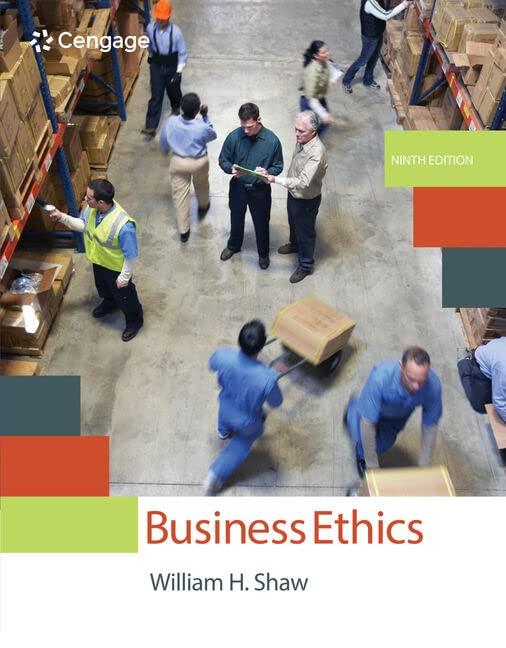EVERYONE WHO HAS EVER APPLIED FOR admission to a selective college or who has been interviewed for
Question:
EVERYONE WHO HAS EVER APPLIED FOR admission to a selective college or who has been interviewed for a highly desired job knows the feeling of waiting impatiently to learn the result of one’s application. So it’s not hard to identify with those applicants to some of the nation’s most prestigious MBA programs who thought they had a chance to get an early glimpse at whether their ambition was to be fulfilled.
While visiting a Businessweek Online message board, they found instructions, posted by an anonymous hacker, explaining how to find out what admission decision the business schools had made in their case. Doing so wasn’t hard. The universities in question—Harvard, Dartmouth, Duke, Carnegie Mellon, MIT, and Stanford—used the same application software from Apply Yourself, Inc. Essentially, all one had to do was change the very end of the applicant-specific URL to get to the supposedly restricted page containing the verdict on one’s application. In the nine hours it took Apply Yourself programmers to patch the security flaw after it was posted, curiosity got the better of about 200 applicants, who couldn’t resist the temptation to discover whether they had been admitted.19 Some of them got only blank screens. But others learned that they had been tentatively accepted or tentatively rejected.
What they didn’t count on, however, were two things: first, that it wouldn’t take the business schools long to learn what had happened and who had done it and, second, that the schools in question were going to be very unhappy about it. Harvard was perhaps the most outspoken. Kim B. Clark, dean of the business school, said, “This behavior is unethical at best—a serious breach of trust that cannot be countered by rationalization.”
In a similar vein, Steve Nelson, the executive director of Harvard’s MBA program, stated, “Hacking into a system in this manner is unethical and also contrary to the behavior we expect of leaders we aspire to develop.”
It didn’t take Harvard long to make up its mind what to do about it. It rejected all 119 applicants who had attempted to access the information. In an official statement, Dean Clark wrote that the mission of the Harvard Business School “is to educate principled leaders who make a difference in the world. To achieve that, a person must have many skills and qualities, including the highest standards of integrity, sound judgment and a strong moral compass—an intuitive sense of what is right and wrong. Those who have hacked into this web site have failed to pass that test.” Carnegie Mellon and MIT quickly followed suit. By rejecting the ethically challenged, said Richard L. Schmalensee, dean of MIT’s Sloan School of Management, the schools are trying to “send a message to society as a whole that we are attempting to produce people that when they go out into the world, they will behave ethically.”
Duke and Dartmouth, where only a handful of students gained access to their files, said they would take a case-bycase approach and didn’t publicly announce their individualized determinations. But, given the competition for places in their MBA programs, it’s a safe bet that few, if any, offending applicants were sitting in classrooms the following semester.
Forty-two applicants attempted to learn their results early at Stanford, which took a different tack. It invited the accused hackers to explain themselves in writing. “In the best case, what has been demonstrated here is a lack of judgment; in the worst case, a lack of integrity,” said Derrick Bolton, Stanford’s director of MBA admissions. “One of the things we try to teach at business schools is making good decisions and taking responsibility for your actions.” Six weeks later, however, the dean of Stanford Business School, Robert Joss, reported, “None of those who gained unauthorized access was able to explain his or.........
Discussion Questions 1. Suppose that you had been one of the MBA applicants who stumbled across an opportunity to learn your results early. What would you have done, and why?
Would you have considered it a moral decision? If so, on what basis would you have made it?
2. Assess the morality of what the curious applicants did from the point of view of egoism, utilitarianism, Kant’s ethics, Ross’s pluralism, and rule utilitarianism.
3. In your view, was it wrong for the MBA applicants to take an unauthorized peek at their application files?
Explain why you consider what they did morally permissible or impermissible. What obligations, ideals, and effects should the applicants have considered?
Do you think, as some have suggested, that there is a generation gap on this issue?
4. Did Harvard and MIT overreact, or was it necessary for them to respond as they did in order to send a strong message about the importance of ethics? If you were a business-school admissions official, how would you have handled this situation?
5. Assess the argument that the applicants who snooped were just engaging in the type of bold and aggressive behavior that makes for business success. In your view, are these applicants likely to make good business leaders? What about the argument that it’s really the fault of the universities for not having more secure procedures and not the fault of the applicants who took advantage of that fact?
6. One of the applicants admits that he used poor judgment but believes that his ethics should not be questioned.
What do you think he means? If he exercised poor judgment on a question of right and wrong, isn’t that a matter of his ethics? Stanford’s Derrick Bolton distinguishes between a lapse of judgment and a lack of integrity. What do you see as the difference? Based on this episode, what, if anything, can we say about the ethics and the character of the curious applicants?
Step by Step Answer:






